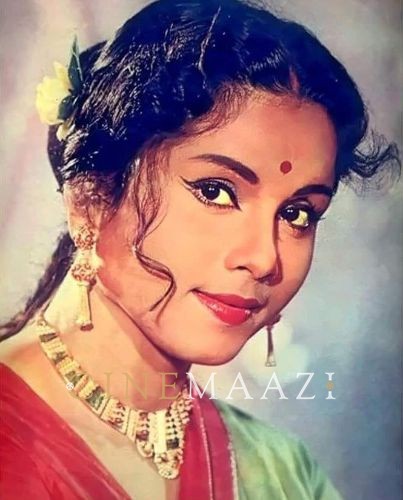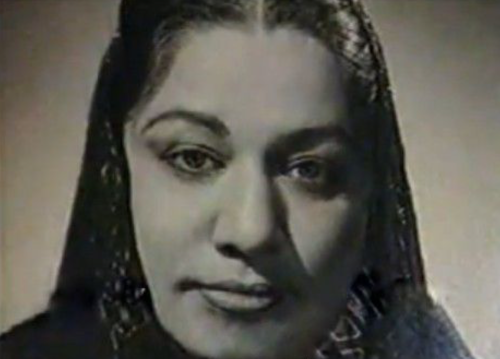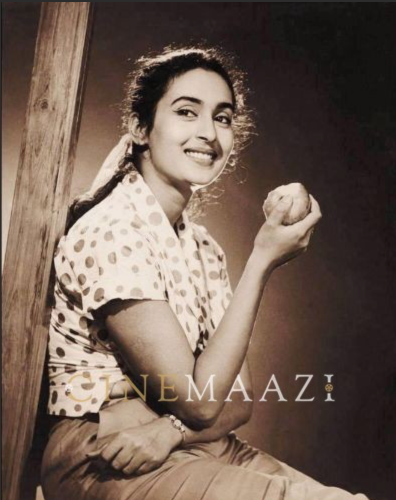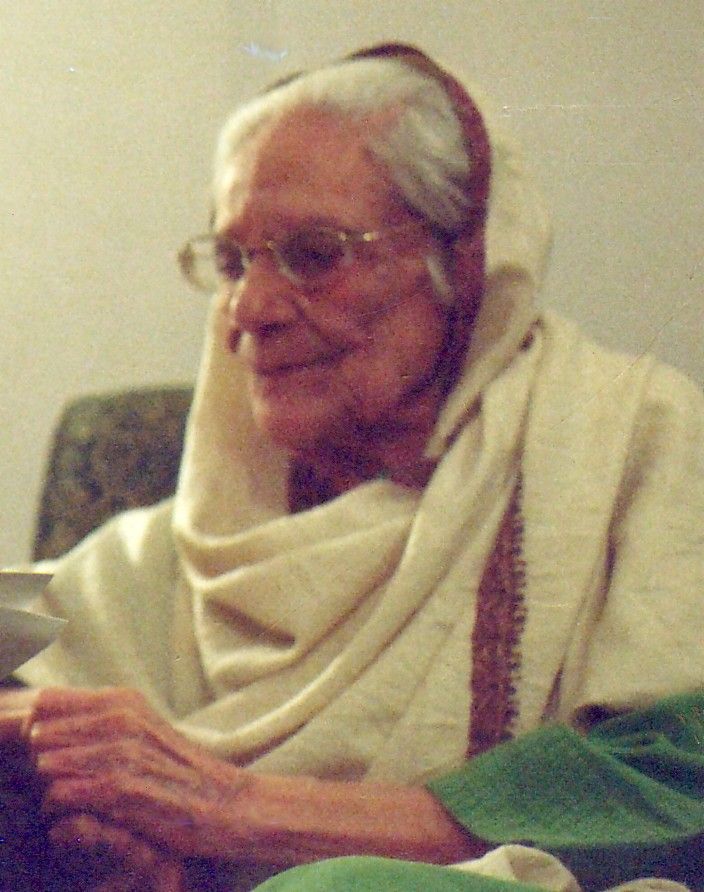Perhaps for today’s hi-tech generation the name Pramila may be unheard of but, this name is enough to transport aficionados of Hindi cinema back to the golden memories of the ’30s to the 50’s era. Pramila was not only a well-known actress and producer of her time; she also has the privilege of being crowned as the very first Miss India. Born on 30th December 1916 and raised in a wealthy Jewish family of Kolkata, Pramila came about her film career by sheer coincidence in the year 1935 with Ardeshir Irani’s Imperial Film Company’s Return Of Toofan Mail. She used to teach in a school in Kolkata and during one of her vacations, she had come to Mumbai to spend time with her sister, actress Romila, and cousin, actor Rose. One day Ardeshir Irani and Director R.S.Choudhury happened to see Pramila and they persuaded her for the main role in the film Return of Toofan Mail. In a meeting with her, sometime before her death, Pramila said that her experience of working in that film was not very pleasant. She said, “I might have been raised in an open and modern environment but I was still an Indian woman at heart. It was not possible for me to compromise with my culture, my self-respect, or my integrity. And hence, for the same reason, when I heard the director’s unnecessary chatter I had to tell him on his face that as an actress it was my duty to follow his directives but other than shooting, I would not indulge in any of his trivialities. On seeing my no-nonsense attitude, he got so irritated that on the pretext of shooting, on the first day itself, he made me climb up and down the Qutub Meenar three times. It was only later that I came to know that there was no such scene in the script and that there wasn’t any reel in the camera either. For various reasons, the film could never be completed.” A disappointed Pramila was about to return back to Kolkata when producer Ardeshir Irani tried to convince her otherwise and signed a 5 film contract with her just to persuade her to stay, however, Pramila was first seen on screen in Kolhapur Cinetone’s film Bhikharan (1935).
Born on 30th December 1916 and raised in a wealthy Jewish family of Kolkata, Pramila came about her film career by sheer coincidence in the year 1935 with Ardeshir Irani’s Imperial Film Company’s Return Of Toofan Mail.
Directed by Premankur Atorthy and musically composed by Harishchandra Bali, the main leads of film Bhikharan were Master Vinayak and Ratan Bai. Pramila had played an important character called Chandra in the film. Pramila’s real name was Esther Viktoria Abraham. The movie Bhikharan featured a comedy song Tilchatta haye tilchatta chhipkali ne pakad liya that was filmed on her. Many big names like Master Vinayak, Baburao Pendharkar and Bhalji Pendharkar were associated with Kolhapur Cinetone and Baburao Pendharkar was the one who gave Esther her screen name Pramila.
According to Pramila, the films Ardeshir Irani had signed her on with Imperial were Mahamaya, Our Darling Daughters (Hamari Betiyaan) & Sarla (all-1936), Mere Laal (1937) and Mother India (1938). In Pramila’s biography, published by Versova, Mumbai based organization Sparrow, that works for woman’s right, also states Imperial film Company as the producer for Mother India, but, as per Hindi Film Geetkosh, compiled by Shri Harmandir Singh Hamraaz, and A to Z Film Directory compiled by Shri Javed Mohammad Zaidi, this film was produced by India Cine Pictures. At the same time Hindi Cinema Ka Sunehra Safar, written by Shri Badri Prasad Joshi, claims Cine Color as the producer for Mother India.
Mijjan Kumar was the main male lead of Mahamaya, Our Darling Daughters (Hamari Betiyaan) & Sarla. Mahamaya was directed by Gunjal and its music director was Anna Sahib Mainkara, who also composed for Our Darling Daughters. While R.S.Chaudhury directed Our Darling Daughters, Premankur Atorthy directed Sarla and Sarla’s music director was Harish Chandra Bali. Gunjal directed the film Mere Laal whose hero was Ram Marathe and its music directors were Harish Chandra Bali & Ram Gopal.
According to Pramila, the films Ardeshir Irani had signed her on with Imperial were Mahamaya, Our Darling Daughters (Hamari Betiyaan) & Sarla (all-1936), Mere Laal (1937) and Mother India (1938). In Pramila’s biography, published by Versova, Mumbai based organization Sparrow, that works for woman’s right, also states Imperial film Company as the producer for Mother India, but, as per Hindi Film Geetkosh, compiled by Shri Harmandir Singh Hamraaz, and A to Z Film Directory compiled by Shri Javed Mohammad Zaidi, this film was produced by India Cine Pictures. At the same time Hindi Cinema Ka Sunehra Safar, written by Shri Badri Prasad Joshi, claims Cine Color as the producer for Mother India.
Mijjan Kumar was the main male lead of Mahamaya, Our Darling Daughters (Hamari Betiyaan) & Sarla. Mahamaya was directed by Gunjal and its music director was Anna Sahib Mainkara, who also composed for Our Darling Daughters. While R.S.Chaudhury directed Our Darling Daughters, Premankur Atorthy directed Sarla and Sarla’s music director was Harish Chandra Bali. Gunjal directed the film Mere Laal whose hero was Ram Marathe and its music directors were Harish Chandra Bali & Ram Gopal.
Made in 1938, the film Mother India will always be known in the history of Indian Cinema as first successfully made color film. The film’s director was Gunjal and its music director was Ram Gopal.
Made in 1938, the film Mother India will always be known in the history of Indian Cinema as first successfully made color film. The film’s director was Gunjal and its music director was Ram Gopal. Along with Pramila, important characters were essayed in the film by Sharifa, Wazir Mohammad Khan, Ghulam Mohammad, Ghulam Rasool and Ashiq Hussain. Actress Asha Sachdev, singer Anwar, and actor Arshad Warsi happen to be the children of the same Ashiq Hussain. Prior to Mother India, there had been three attempts to make a color film in India, but, due to technical reasons, they remained unsuccessful. These films were Bilwamangal (1932) of Madan Theatres - Kolkata, Sairandhri (1933) of Prabhat film Company-Pune and Kisan Kanya (1937) of Imperial film Company-Mumbai.
Pramila did her very first stunt role in Jungle King. Also, this was Wadia Movietone’s first film to feature another actress under their banner other than Nadia who was their permanent actress.
1939 saw four films of Pramila of which Bijli and Huqum Ka Ikka were produced by Prakash Pictures and Jungle King & Kahan Hai Manzil Teri was produced under the banner of Wadia Movietone. Shankar Rao Vyas & Lallubhai Nayak were the music directors for both of Prakash Pictures films. Bijli was directed by Balwant Bhatt and Jairaj, Pramila, Ghulab, Shyam Sunder and Shirin played important characters in it. Producer-director Mahesh Bhatt is actress Shirin’s son. Shanti J.Dave directed the movie Huqum Ka Ikka which saw Pramila along with actors like Umakant, M.Zahoor, Kumudini and Shyam Sunder. Pramila did her very first stunt role in Jungle King. Also, this was Wadia Movietone’s first film to feature another actress under their banner other than Nadia who was their permanent actress. Director Nari Ghadiyali started his career with this film and its hero was John Cavas. Written by Munshi Shyam and composed by Madhulal Damodar Master, 3 out of the 6 songs in the film Mere sajan ab tak nahin jaage dekho ho gai bhor, Prem nadi lehrati hai madhur swaron me gaati hai and Hook uthat hai mera jiya ghabraaye were picturized on Pramila. Madhulal Damodar Master composed for the film Kahan Hai Manzil Teri as well and its lyricist was Wahid Quraishi and along with Pramila, the main roles saw Harishchandra, Agha, Dalpat and Minoo The Mystic. In the year 1940, Pramila was once again seen in Prakash Pictures’ film Sardar and Jayant was seen opposite her. Rest of the cast comprised M. Nazir, Nirmala and Amir Bai Karnataki. The composer was Shankar Rao Vyas and the lyrics were penned by Balam & Anuj. This movie was directed by Dwarka Khosla. In 1939 Pramila married Mijjan Kumar, the hero of films like Mahamaya, Our Darling Daughters, and Sarla. He is the same Mijjan Kumar who later on played the sculptor in the movie Mughal-E-Azam and on whom the famous song Aye mohabbat zindabad was filmed. Originally from Lucknow, Kumar’s real name was Sayyad Hassan Ali Zaidi. The story behind his second name Kumar is also quite interesting. According to Pramila, Sayyad Hassan Ali Zaidi, who used to work in Kolkata’s New Theatres early in his career, was playing the main lead under the same banner in its 1933’s Pooran Bhagat. The film was ready for release when communal riots broke out in Bengal. Due to the sensitive atmosphere around, the distributors were hesitant to print a non-Hindu hero’s real name on the posters of a devotional film and director Kumar Debaki Bose, who hails from a royal family, saw the distributer’s hesitation and said: “From today on I give you an important part of my name”. And actually, after this, he never used the word Kumar before his name ever again which was a norm for males in royal families.
The ’40s brought with itself a period of great change for Pramila. In 1941, she essayed important characters in Chitra Productions’s film Kanchan and in Mohan Pictures’s film Shehzadi.
The ’40s brought with itself a period of great change for Pramila. In 1941, she essayed important characters in Chitra Productions’s film Kanchan and in Mohan Pictures’s film Shehzadi. Gyan Dutt was the music composer for the film Kanchan and it was also the first film of music director Naushad’s career where he got a chance to compose just one song Bata do koi kaun gali more shyam which was written by D.N. Madhok and sung by Leela Chitnis. However, his first film as independent music director Prem Nagar, signed later, had already been released in the year 1940. Trilok Kapoor was Pramila’s hero in director J.P. Advani and music director Ram Gopal’s film Shehzadi. She also acted in Bombay Talkies film Basant (1942). The song Hua kya qusoor jo humse ho door from Basant was filmed on her and had become very popular at that time. Baby Mumtaz entered the field of acting with the film Basant and later on came to be known as Madhubala.
Hence the two friends decided to turn producers themselves and established their very own banner Silver Films on 16th March 1942. As Pramila was Kumar’s wife, she became a very important part of this banner. The mahurat shot of their banners' first movie Jhankaar was done by Devika Rani.
Kumar was working with Ranjit Studio at that time and had already done few films like Nadi Kinare (1939) and Thokar (1939) under that banner. And suddenly one day he was given a termination notice from the job. On the other side, his close friend actor Chandramohan was very angry with his company Minerva Movietone because in spite of the company’s promise to increase his salary after the huge success of the film Pukar (1939) they hadn’t lived up to their promise. Hence the two friends decided to turn producers themselves and established their very own banner Silver Films in 16th March 1942. As Pramila was Kumar’s wife, she became a very important part of this banner. The mahurat shot of their banners' first movie Jhankar was done by Devika Rani. Its director was S.Khalil, the music director was Bashir Dehalvi and the main roles were played by Chandramohan, Kumar, Pramila, Azurie, Shehzadi, and Gope. Pramila sang 3 songs in this film, Punjabi solo Raat haneri mahi ve vach chamkan taare & a duet with Kumar in Dil ka thikana kaun, jeene ka bahaana kaun, both penned by D.N .Madhok and solo Hum to do bol keh ke hare hain penned by Saliq Lucknowi. But this film flopped miserably.
Over the next two decades, Pramila and Kumar together produced Bhalai (1943), Bade Nawab Sahab (1944), Naseeb (1945), Devar (1946), Dhun (1953) and Bahana (1960) under the banner of Silver Films and Nehle Pe Dehla (1946), Dhoom Dhaam (1949) and Dilbar (1951) under the banner of Shama Productions and Aap Beeti (1948) under the banner of Kumar Studios Ltd. and Badal aur Bijli (1956) and Jungle King (1959) under the banner of Artistes United. Of these films, Aap Beeti, Dhun and Bahana were directed by Kumar and film Badal aur Bijli was directed by Pramila and Kumar’s son Maurice Abraham. While Raj Kapoor and Nargis were the main leads of the film Dhun, Sajjan and Meena Kumari were seen essaying the main roles in Bahana. Composed by Madan Mohan, the songs of both films were very popular in that eras.
Over the next two decades, Pramila and Kumar together produced Bhalai (1943), Bade Nawab Sahab (1944), Naseeb (1945), Devar (1946), Dhun (1953) and Bahana (1960) under the banner of Silver Films and Nehle Pe Dehla (1946), Dhoom Dhaam (1949) and Dilbar (1951) under the banner of Shama Productions and Aap Beeti (1948) under the banner of Kumar Studios Ltd. and Badal aur Bijli (1956) and Jungle King (1959) under the banner of Artistes United. Of these films, Aap Beeti, Dhun and Bahana were directed by Kumar and film Badal aur Bijli was directed by Pramila and Kumar’s son Maurice Abraham. While Raj Kapoor and Nargis were the main leads of the film Dhun, Sajjan and Meena Kumari were seen essaying the main roles in Bahana. Composed by Madan Mohan, the songs of both films were very popular in that eras.
She won the first Miss India award started by a journalist association in 1947 and it is a record that exactly 20 years later i.e. in the year 1967 her daughter Naqi Jehaan won the same award.
Even though Pramila had turned producer, she continued to act in films made under other banners. Other than acting for her own banner, she was also seen working in other banners such as Saheli (1942 / Star Productions), Ulti Ganga (1942 / Minerva Movietone), Saal Girah (1946 / B.Krishin Movietone), Shalimar (1946 / Shorey Pictures-Lahore), Doosri Shadi (1947 / B.Krishin Movietone), Beqasoor (1950 / Madhukar Pictures), Hamari Beti (1950 / Shobhna Pictures), Majboori (1954 / Murli Movietone), Fighting Queen (1956 / N.K.G.Productions) and Murad (1961 / N.K.G.Productions). She won the first Miss India award started by a journalist association in 1947 and it is a record that exactly 20 years later i.e. in the year 1967 her daughter Naqi Jehaan won the same award. Naqi Jehaan was seen playing an important role in 1966’s film Aakhri Khat.
Pramila was taken aback by Kumar’s decision to migrate to Pakistan in the early 60s. But despite all the pressures to leave India, she did not succumb to the same.
Pramila was taken aback by Kumar’s decision to migrate to Pakistan in the early 60s. But despite all the pressures to leave India, she did not succumb to the same. Kumar’s departure not only affected Pramila’s personal life but her professional life was affected as well, and subsequently it broke her association with films completely. Bahana of 1960 was her last film as a producer and 1961’s Murad became her last movie as an actress. She faced many difficulties in life but never gave up, she didn’t let her kids miss a father figure, she took on the responsibilities of a father and a mother both and in such a way, she imparted good ethics to them and provided them with a bright future.
Pramila spent her last 45 years in her bungalow Pramila Niwas at Shivaji Park-Dadar-West with her bustling family comprising of sons-daughters in law and grandchildren. Her younger son Haider Ali is a well-known actor who made a mark for himself with Doordarshan’s serial Nukkad. Haider Ali wrote the story-screenplay for Ashutosh Gowarikar’s Jodhaa Akbar in 2008 and the famous Khwaja mere Khwaja song was filmed on him as well. Pramila’s daughter Naqi Jehaan alias Nandini Kamdar is married into the renowned business tycoon Kamdar family of Mumbai.
Actress-Producer Pramila who has carved herself a special place in the history of Hindi Cinema passed away on 6th August 2006 at the age of 90 in Mumbai.
Part of Shishir Krishna Sharma's Beete Hue Din blog series.
Pramila spent her last 45 years in her bungalow Pramila Niwas at Shivaji Park-Dadar-West with her bustling family comprising of sons-daughters in law and grandchildren. Her younger son Haider Ali is a well-known actor who made a mark for himself with Doordarshan’s serial Nukkad. Haider Ali wrote the story-screenplay for Ashutosh Gowarikar’s Jodhaa Akbar in 2008 and the famous Khwaja mere Khwaja song was filmed on him as well. Pramila’s daughter Naqi Jehaan alias Nandini Kamdar is married into the renowned business tycoon Kamdar family of Mumbai.
Actress-Producer Pramila who has carved herself a special place in the history of Hindi Cinema passed away on 6th August 2006 at the age of 90 in Mumbai.
Part of Shishir Krishna Sharma's Beete Hue Din blog series.
184 views







.jpg)


